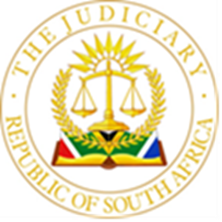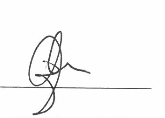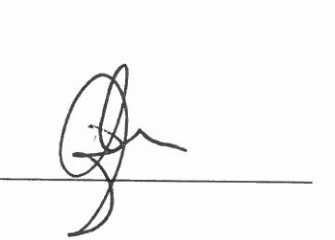4

IN THE HIGH COURT OF SOUTH AFRICA
GAUTENG DIVISION, PRETORIA
REPORTABLE: NO OF INTEREST TO OTHERS JUDGES: NO REVISED SIGNATURE DATE 
 10 MAY 2023
10 MAY 2023
In the matter between:
REHANA SURTIE TAYOB N.O. First Plaintiff
(In her capacity as executrix
In the Estate Late ABDUL RAZAK
TAYOB SURTIE)
EDWARD JEFFREY KOORBANALLY Second Plaintiff
and
PUBLIC INVESTMENT CORPORATION (PIC) First Defendant
ABSA GROUP LIMITED Second Defendant
LEAVE TO APPEAL JUDGMENT
NDLOKOVANE AJ
INTRODUCTION
[1.] The First and Second Plaintiff (‘the plaintiffs’) in the main action applies for leave to appeal to the full bench of this division alternatively to the Supreme Court of Appeal, against the whole judgment and order I handed down on 06 October 2022, after I upheld the first defendant’s exception with costs.
[2.] The application for leave to appeal is sought in terms of the provisions of Section 17(1)(a)(i) of the Superior Courts Act, 2013.
[3.] The application for leave to appeal is opposed by the first defendant.
[4.] For the sake of convenience, I will refer to the parties as they are cited in the main judgment. After delivery of the judgment on the 6th October 2022, the plaintiffs filed a detailed notice of application for leave to appeal dated 26 October 2022.In support of the application for leave to appeal, the plaintiffs rely on a number of grounds and these can be summarised as follow:
failure to seek an order declaring the Policy invalid, unconstitutional, or reviewed and set aside.
failure to challenge Regulation 4(c) and/or decision by the Minister of finance.
Lastly, that paragraphs 68 and 70 of the main judgement are contradictory in nature relating to whether or not the particulars of claim disclose a cause of action or not.
THE TEST IN AN APPLICATION FOR LEAVE TO APPEAL
[5.] Applications for leave to appeal are governed by ss 16 and 17 of the Act. Section 17 makes provision for leave to appeal to be granted where the presiding judge is of the opinion that either the appeal would have a reasonable prospect of success or there is some other compelling reason why the appeal should be heard, including whether there are conflicting judgments on the matter under consideration.
[6.] The plaintiffs indicated in the notice of application for leave to appeal that the application is premised on the provisions of s 17(1)(a)(i). This was the basis upon which the plaintiffs in the notice of application for leave to appeal dated 26 October 2023, records that reasonable prospects of success exist that that another court would make a different finding to the judgment I handed down on 06 October 2023.
[7.] With the enactment of s17 of the Act, the test has now obtained statutory force and is to be applied using the word ‘would’ in deciding whether to grant leave. In other words, the test is would another court come to a different decision. In the unreported decision of the Mont Chevaux Trust v Goosen & 18 others,1 the Land Claims Court held, albeit obiter, that the wording of the subsection raised the bar for the test that now must be applied to any application for leave to appeal.
[8.] In the present matter I would have to determine whether another court would (my emphasis) come to a different decision. I have considered the application for leave to appeal and the oral submissions of the parties as it shall appear hereunder.
PLAINTIFF’S CONTENTIONS
[9.] A careful consideration of the plaintiffs’ heads of arguments and the addresses during the hearing by the plaintiffs’ counsel, as would be expected, in support of its contention in relation to the first ground of appeal submitted that, upon the lapse of the Policy, the impediment to paying out the funds to a foreign creditor, citizen, or country, held by or on behalf of the first defendant, ceased to exist. The necessary result was that a foreign creditor became entitled to claim monies (should he or she so wish) held in a special restricted account in accordance with the provisions of Regulation 4(c). The first plaintiff is such a creditor and has, following the lapse of the Policy, claimed the monies due to her in her capacity as executor of the estate of the late Abdul Razak Tayob Surtie. The first defendant's, and thereafter my reliance on section 12(2)(b) of the Interpretation Act 33 of 1957 is therefore, misplaced. The plaintiffs states in paragraphs11 and sub-paragraphs to paragraphs 12 of its supplemented heads of arguments the following reasoning for its submissions:
“11.The particulars of claim clearly demonstrate that the plaintiffs are claiming: the capital claim totalling ZAR1.35 trillion; the same monies that were repatriated in 1984; interest on these monies, from June 1985 until June 2010;the fruits of the investment of the monies in Government Bonds; interest on the aforesaid capital amount of ZAR 1.35 trillion a tempore more, (i.e. unless there is mora ex re, from date of demand, alternatively date of service of the summons);The pleading of the history of the flow of the monies from their repatriation to South Africa until they came to be held by the PIC pursuant to the Regulations of the Schedule (in terms of which they are currently held) does not change the nature of the plaintiffs’ claim from the monies currently held by or on behalf of the PIC (as a quasi-vindicatory claim) to a historical debt, and does not elevate such allegations to allegations which are essential to demonstrate a valid cause of action;
12. Because, as set out above, the monies claimed through the current action is held by the PIC pursuant to the Regulations to the Schedule (and not by ABSA pursuant to the 1961 Regulations), the 1961 Regulations no longer regulates the payment of the funds due to the Estate of the Late Mr. Surtie. It is for this reason that it was common cause at the hearing of the matter (as recorded above) that the prohibition on the payment of the monies to the late Mr Surtie's estate no longer exists.”
FIRST DEFENDANTS’ CONTENTION
[10.] In contrast, the first defendants contend that the plaintiffs were required to have the relevant provisions of the 1961 Regulations set aside in order to complete its cause of action. In support of its contention, the first defendants submit that:
“This proposition by the plaintiffs as set out in paragraph 9 above, however, missed the fundamental point which formed the subject of the exception in that the Plaintiffs seek payment of R1.35 trillion which consist of a capital amount of R87.84 billion plus interest calculated as from July 1985, on an average of 5- 6.5 % per annum. The Plaintiffs thus seek to claim a historical debt, that on the pleadings arose in June 1985. They further seek to recover interest on the said amount calculated from 1985 to 2010. 14. On a conspectus of all the allegations contained in the amended particulars of claim, and to avoid a successful exception, the Plaintiffs must demonstrate an entitlement to the capital amount, and interest from June 1985.”
[11.] To sum up, the first defendant’s contentions as they relate to the application for leave to appeal, the first defendant contends that the plaintiffs for the first and second ground of exception had no right to demand payment and would continue to have no such right until the consequences of the policy and/ or enabling legislated ceased (my emphasis), therefore on these grounds alone, the appeal must fail. Lastly, on the last ground regarding the contradictions allegedly made in paragraphs 68 and 70 of the main judgement. The first defendant submits that this ground as raised by the plaintiffs is misplaced and same has no merit as the findings referred to were thoroughly dealt with in paragraphs 61 and 63 of the main judgement. In dealing with this argument, I wish to reproduce the finding in this regard as reflected paragraph 63 of the main judgement which reads as follows:
“In relation to the first defendant’s contention that the plaintiffs failed to plead any compliance with the requirements of regulations 4(c)(ii), which is a pre-condition of repayment, I tend to disagree with the first defendant in that it is not within the plaintiff’s competence to comply with the requirements of regulation 4(c) (ii) absent the Minister’s determination in that regard.”
[12.] Therefore, a proper reading of this paragraph is self-explanatory, I see no merit in this arguments and consequently, this ground alone must fail for lack of merit.
[13.] It has long been recognised that giving effect to the policy or object or purpose of legislation is an accepted strategy of statutory interpretation. It has thus always been the duty of our courts to give effect to the purpose of an enactment. It is for the foregoing reasons that I stand by the reasoning furnished in the main judgement in as far as it relates to the first and second grounds of appeal.
[14.] Having considered the arguments presented by the plaintiffs and first defendants, the authorities applicable in this regard together with reasons furnished in the main judgement and in the parties heads of arguments for the application for leave to appeal, I am not satisfied that reasonable prospects of a successful appeal exist. I am of the view that there is no reasonable prospect that another court would differ with me.
ORDER
[15.] In the result, the following order is made:
1. Leave to appeal is refused.
2. The plaintiffs are to pay the costs of the application for leave to appeal.

N NDLOKOVANE AJ
ACTING JUDGE OF THE HIGH COURT
GAUTENG DIVISION, PRETORIA
Delivered: this judgment was prepared and authored by the judge whose name is reflected and is handed down electronically and by circulation to the parties/their legal representatives by email and by uploading it to the electronic file of this matter on Caselines. The date for handing down is deemed to be 10 May 2023.
APPEARANCES
FOR THE PLAINTIFF: ADV. H LOOTS SC
ADC. M FILTON
FOR THE FIRST DEFENDANT: ADV. NH MAENETJE SC
ADV. A VORSTER
HEARD ON: 26 JANUARY 2023
DATE OF JUDGMENT: 10 MAY 2023
1 2014 JDR 2325.
